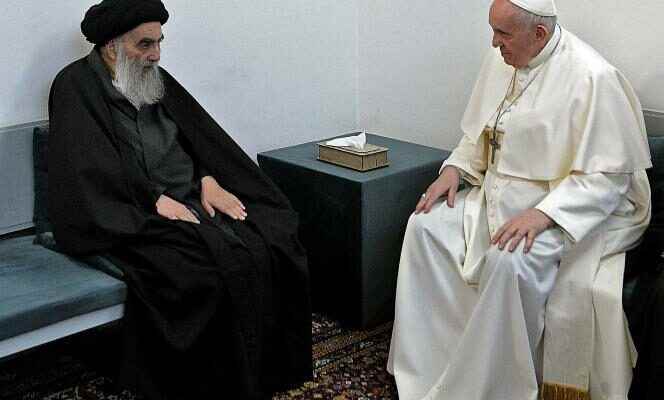Lhe Russian invasion of Ukraine has given increased sensitivity to the dialogue initiated by the Vatican with the Orthodox Patriarchate of Moscow, with some accusing Pope Francis of having privileged this dialogue at the expense of a more clear-cut position in favor of Ukraine . Such controversies have relegated to the background the substantial progress that dialogue with Islam has made since the beginning, in 2013, of this pontificate.
The current pope, taking into account the profound diversity of Islam, has multiplied the channels of exchange with various Muslim institutions, as well as with the bodies of interreligious dialogue which have often emerged at the initiative of States concerned with improve their international image. The Holy See has thus refused to allow itself to be locked into dialogue with a single institution, which would not make much sense given the absence of an Islamic equivalent of a universally recognized pope.
The democratization of Islamic-Christian dialogue
Dialogue with the Muslim world has long been conducted in the Vatican by narrow circles of specialists. The Pontifical Institute for Arab Studies and Islamology (Pisai) has been based in Rome since 1964, after the transfer to Italy of the institute established four decades earlier by the White Fathers in Tunisia. While its initial vocation was to train missionaries in a Muslim environment, it is now devoted to interreligious dialogue, with the publication of the journal islamochristiana, of high academic quality. Moreover, within the Roman curia, a dicastery, the pontifical equivalent of a ministry, the PCID, is intended for interreligious dialogue, with a specific office for Islam. The person in charge is a Jordanian bishop, trained in a Catholic seminary in the West Bank, then a graduate of Pisai, where he now teaches Islamic law. On behalf of the Vatican, he maintains close relations with some twenty institutions, from Morocco to Indonesia, via Jordan, Iran and the Gulf.
This diversity in the exchange was encouraged by Pope Francis, who gave unprecedented impetus to dialogue with Islam. Years of preparation made possible, in February 2019, the “Document on human fraternity, for world peace and common coexistence” signed by Pope Francis, on the occasion of his trip to Abu Dhabi, with the Grand Imam of Al-Azhar, a historical reference of Sunni Islam.
The two signatories return back to back “ atheist and agnostic extremismon the one hand, and “religious fundamentalism, extremism and blind fundamentalism”on the other hand, to categorically condemn “despicable terrorism”. They are resolutely committed to a “full citizenship” and judge discriminatory ” the concept of “minorities, which carries with it the seeds of feelings of isolation and inferiority”. This is a historic break for the Vatican, which has long mobilized in favor of Eastern Christians in the name of the defense of “minorities”.
You have 44.86% of this article left to read. The following is for subscribers only.
